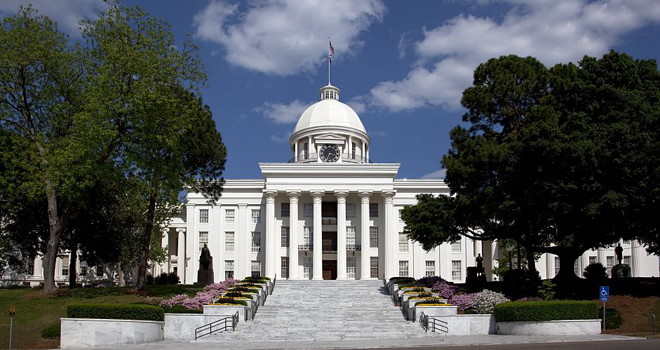Updated: December 14, 2012, 3:29 PM
A group of Alabama voters alleged in a federal lawsuit filed on Wednesday that a redistricting plan for the state House and Senate discriminated against minority voters and was passed with racist intentions.
Their evidence? Secret FBI recordings that captured racial comments by two state lawmakers who turned out to have been cooperating with a major investigation.
U.S. District Judge Myron Thompson wrote a scathing opinion last year concerning state Sen. Scott Beason (R) and former Rep. Benjamin Lewis (R), who were cooperating with the FBI as part of a massive corruption investigation in the state. Thompson concluded that the two Republicans were only cooperating with the FBI because of their “ulterior motives rooted in naked political ambition and pure racial bias.” He said the pair wanted to keep a pro-gambling bill off the ballot in 2010 because they believed such a proposal would increase African-American turnout and negatively impact Republicans.
One of the recordings featured Beason referring to blacks as “aborigines,” while another recording captured him agreeing with colleagues who predicted that casinos would lure blacks with free buffets and gambling credits and bus them to the polls.
Those FBI tapes play a central role in the federal lawsuit filed by the Alabama Democratic Conference and several voters who allege the redistricting plan passed by the Republican-controlled legislature and signed by Gov. Robert Bentley (R) is discriminatory.
Bentley and Secretary of State Beth Chapman (R) were both named as defendants in the suit. Their spokespeople did not return TPM’s calls for comment on Friday, nor did a spokesman for Attorney General Luther Strange (R).
Beason apologized for his comments in September 2011, a few months after they became public during the corruption trial. He told TPM on Friday that he only voted on the redistricting lines but wasn’t directly involved in drawing them. He said the plaintiffs in the suit were grasping at straws.
“This is a simple situation where somebody who is not happy with the way the redistricting lines were drawn are just continuing to try to find something to change that,” Beason said. He accused the plaintiffs in the case of abusing the race card.
Lewis, now a judge in Houston County, did not respond to a message left with his office on Friday.
While the redistricting plan was approved by the Justice Department in October, the ADC and its co-plaintiffs alleged the redistricting was passed with the “purpose of gerrymandering voting districts by the dilution, packing and artificial capping of black or other minority voting strength.”
Lawyers for the plaintiffs argued the recordings offered a “rare glimpse into the attitudes and motives of the dominant all-white faction of the Legislature,” and showed that racial comments were so common that no other legislators objected.
“None of the other white leaders involved in these and other recorded calls made any objection or other comment regarding the racist comments of Beason and Lewis,” the lawsuit stated. “In response to the public release of the tape recordings there was deadening silence from the leadership of the all-white dominant Legislative faction.”






